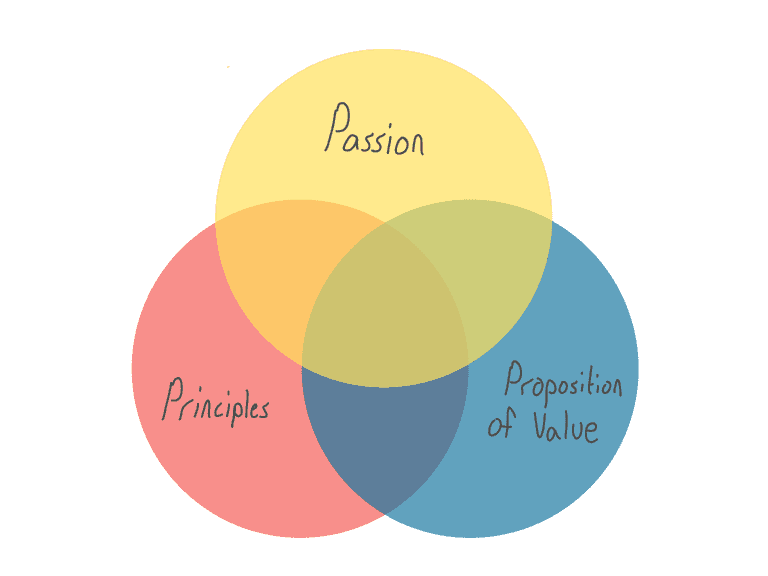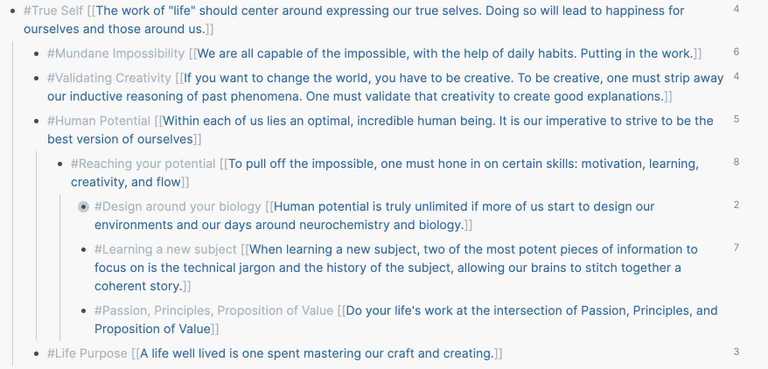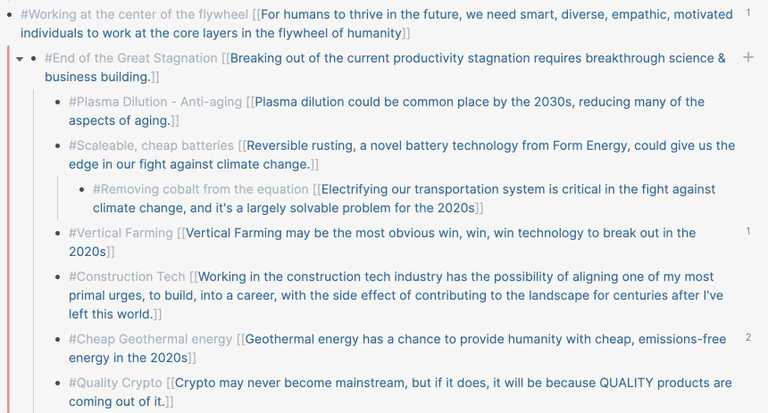Sep 30, 2021
Optimizing for Impact
Introduction
The purpose of this piece is to analyze a framework for building a successful career with the well-intended side effect of making the world a better place. We will discuss the philosophy informing this decision framework, its components, and practical tips on crafting this framework to optimize for a successful, impactful career.
Becoming a Peak Performer
Presenting a fairly bleak and meager view of humanity, the Harvard psychologist William James explained humans as such:
The human individual lives usually far within his limits; he possesses powers of various sorts which he habitually fails to use. He energizes below his maximum, and he behaves below his optimum.
What enables a select few to reach their potential while the rest of us grovel in our "below optimum" states? Motivation. Without it, the odds are stacked against us. Willpower, discipline, grit. These are all potent side effects of motivation. As Steven Kotler puts it
Motivation is what gets you into this game
Without the intrinsic catalyst of motivation, making progress in life can be a daunting, seemingly impossible task. Finding a career, a purpose, rooted in intrinsic motivation is the pre-requisite for living a life that exceeds not only your expectations, but imagination. And when you find that motivation, living a full, lustrous life moves from impossible to probable.
Knowing that becoming a peak performer is predicated on having passion and purpose in life, the why becomes much more important than the how. But how do we determine the why? Why do we want to start a business that revolutionizes the toilet paper industry? Why do we want to apply for a job as an infrastructure engineer at a big tech company? If the answer is money, why money? If the answer is to make a difference, why make a difference? These are questions that only you can answer. It's difficult work and you might not like all of the answers you find. But failing to take the time to answer these questions, and you'll be paddling upstream your entire career. The following framework acts as a guidepost when making these important career decisions. Aligning Passion, Principles, and your own Proposition of Value unlocks optimal impact and performance in whatever path you choose.

Principles
Principles can be defined as a core set of values that drive everyday decision making. Spending time to think and write out your principles has an outsized ROI in life, enabling you to make better, faster decisions. You'll find that many of your principles have been lurking beneath the surface since your childhood years. Converting those latent, ambiguous feelings into words can have a profound impact on one's life.
Examples
Finding my own set of life principles is an ongoing project. Building these principles was a function of my genetics, upbringing, and education. I'm sharing these not for you to copy/paste, but rather to provide a template. Minus a few personal omissions...


These principles are not built out of thin air. Each bullet point links back to a primary source. A book. A conversation. A tweet. Accompanied by my own thoughts. As more and more bullet points build, common threads of thought emerge. Reviewing these principles over time has enabled me to develop a strong sense for career choices, backed by primary sources and enthusiasm. In no particular order, those industries are:
- Biotech
- Climate Change
- Privacy
Passion
The age old advice of "follow your passion" need not apply here. We need to consider them in the context of our other two circles. One can have a passion for baseball, or punk bands from the 80s. While it would be a shame to discard these passions, unless your Proposition of Value includes, "win the genetic lottery and become the next Babe Ruth", chances are these should be hobbies, not job options.
Some of your most powerful passions will be the things that others hate, or at least find dreadfully boring. "Powerful" equates to finding a passion that is likely to intersect with your:
- Principles - a passion that is intrinsically motivated to improve society
- Proposition of Value - a passion that leverages your unique skill set
Proposition of Value
Principles and Passion typically take a long time to figure out. They are also notoriously difficult to change over time. Value is different. We can very quickly change our proposition of value and leverage skills gained to align with our Principles & Passions.
Example 1
You're in college and there is a healthcare problem. You are passionate about solving it within the next decade. You continue your Liberal Arts education but start taking more Biology courses. By doing so, you learn more about the field and better understand the problem space. Most importantly, you identify if you have the potential to create a positive impact.
Example 2
You are a research scientist. You believe machine learning (ML) will advance critical areas of society. After researching (ah, your specialty!), you take a handful of Udemy/Skillshare courses focused on Python and the "ML stack" to help get a foot in the door as a key contributor to an open source project like Pandas. A year later you are still missing a Computer Science degree, but your diverse background as a scientist, paired with visible work on important ML projects leads you to get a job as an AI researcher!
Get creative and gritty when identifying how to create value for the principles & passions you care deeply about. This is the fun part.
Conclusion
We've now discussed the fundamentals of our impact decision-making framework. This is not the end product, this is a starting place. Defining the size and location of each circle is the real work. If you're interested in learning more about how to optimize these three circles, please reach out and tell me what to write about next! Future blog posts could include:
- How to Quanity your Potential Impact
- Principles: How To Find Them
- Passion: Finding the things you love that everyone else hates
- Superhuman Protocol: Increasing your value prop to society
Thank you for taking the time to read this article and good luck in your journey.
References
If you're interested in the science behind peak performance, I highly recommend taking a few hours to read Steven Kotler's book, The Art of Impossible. Here are a few shiny lures to entice would-be readers...
- Stacking drivers to activate biological virtuous cycles
- How to be 600% more creative
- Cut your learning time in half
